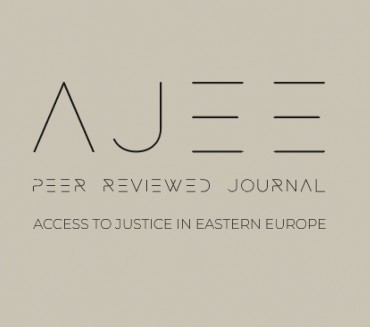1. Introduction. – 2. International legal source water protection. – 3. Legal support for the right to safe drinking water in Ukraine and globally. – 4. Drinking water quality at the international level and in Ukraine: legal support and relationship with human health and life. – 5. Judicial practice in disputes on ensuring the right to safe drinking water access in Ukraine and the EU. – 6. Conclusions.
Background:
The global shortage of safe drinking water combined with urgent challenges regarding the safeguarding and sustainable management of this vital natural resource underscores the need to secure the human right to clean water access. This article explores legal water protection and examines the regulatory framework ensuring the right to safe drinking water as a critical condition for health and survival, both in Ukraine and globally. It defines the challenges of judicial protection of this right at national and global levels. Drawing on the European Union’s experience, the article suggests incorporating provisions highlighting the essential role of water resources and their direct impact on human health and well-being. Accordingly, the authors recommend improving the Constitution of Ukraine by making some amendments and revisions to environmental and healthcare legislation.
Methods:
This study employs a multidisciplinary methodology that combines general philosophical, scientific, specialised, and legal approaches to thoroughly examine the legal frameworks governing the human right to safe drinking water. These frameworks are crucial for protecting human health and life in Ukraine and beyond. The authors employed descriptive and analytical methods of inquiry, along with techniques for interpreting legal norms. The challenges of legal regulation were examined through the study of both international and national legal frameworks. Consequently, different methods were used for the research, such as dialectical, formal-logical, analytic and synthetic, system-structural, formal-legal, comparative legal, legal norm interpretation, prognostic, legal modelling, and logical-legal methods.
Results and Conclusions:
This study explores the legal regulation of the human right to safe drinking water as an essential part of health and life in Ukraine and in every country around the world. It also analyses the judicial protection of this right at both global and national levels. A key finding is that ensuring legal support for the right to safe drinking water is a fundamental environmental human right by making it recognised in the Constitution of Ukraine, the Fundamentals of Health Legislation, the Law of Ukraine “On Environmental Protection,” and the Water Code of Ukraine. This would significantly enhance access to clean water and sanitation, aligning with Ukraine’s Water Strategy, targeted for completion by 2050. Without equitable access to safe water, fulfilling essential rights such as health, well-being, an adequate standard of living, and even civil and political rights is unattainable. The application of the European Court of Human Rights (ECHR) case law on environmental violations is crucial for improving judicial practice in Ukraine. It strengthens citizens' rights through the European Convention on Human Rights and helps address legal gaps, particularly in safeguarding access to water. National courts must integrate ECHR jurisprudence when addressing issues related to water rights. Codifying the human right to safe drinking water in Ukrainian law will empower national courts to enforce this norm, laying the groundwork for a comprehensive protection system.

